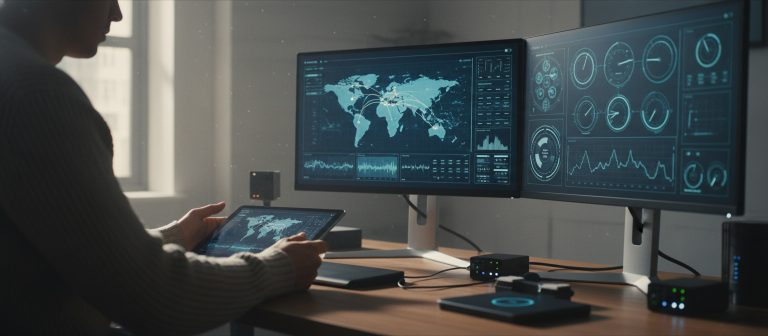What is Remote Development?
Remote development refers to the practice of software development in an environment where developers work from various locations rather than from a centralized office. This model has gained significant traction, especially with advancements in technology and the increasing demand for flexible work arrangements. In essence, remote development allows teams to collaborate on software projects without the constraints of geographical boundaries, leveraging tools and technologies that facilitate effective communication and project management.
Importance of Remote Development in Today’s Tech Landscape
The rise of remote development is not just a trend; it reflects a fundamental shift in how teams operate in the tech industry. With the global talent pool at their disposal, companies can hire the best developers regardless of location. This flexibility not only fosters diversity within teams but also boosts productivity as developers can work in environments that suit their preferences. Furthermore, remote development can significantly reduce overhead costs associated with maintaining physical office spaces.
Key Components of Remote Development
To understand remote development better, we can break it down into several key components:
- Collaboration Tools: Platforms like GitHub, GitLab, and Bitbucket enable version control and collaborative coding, making it easier for teams to work together on projects.
- Communication Tools: Applications such as Slack, Microsoft Teams, and Zoom facilitate real-time communication, ensuring that team members can stay connected regardless of their physical location.
- Project Management Software: Tools like Jira, Trello, and Asana help teams organize tasks, track progress, and manage workflows efficiently.
- Development Environments: Cloud-based integrated development environments (IDEs) allow developers to write, test, and deploy code from anywhere, making it easier to maintain productivity.
Real-World Applications of Remote Development
Remote development is applied across various sectors and industries. Here are some examples:
- Startups: Many tech startups embrace remote development to attract talent without geographical constraints, allowing them to scale quickly and innovate without the overhead of a physical office.
- Freelance Developers: Freelancers often leverage remote development to work with multiple clients globally, offering their services on platforms like Upwork or Freelancer.
- Large Enterprises: Companies like GitHub and Automattic have adopted remote development as their primary mode of operation, showcasing that even large organizations can thrive in a fully remote environment.
How to Implement Remote Development in Your Workflow
For developers looking to integrate remote development into their workflow, here are practical steps to consider:
- Establish Clear Communication Channels: Use a combination of chat and video conferencing tools to keep communication open and transparent among team members.
- Set Up a Robust Project Management System: Implement a project management tool that fits your team’s workflow and ensures everyone is aligned on deliverables.
- Utilize Version Control Effectively: Encourage the use of version control systems to manage code changes and collaboration seamlessly.
- Regular Check-Ins: Schedule regular meetings to discuss project progress, address any challenges, and foster team camaraderie.
Related Concepts in Remote Development
Understanding remote development also involves familiarizing yourself with related concepts:
- Agile Development: A methodology that emphasizes iterative progress and flexibility, often complemented by remote working arrangements.
- DevOps: A collaborative approach that integrates development and operations for faster delivery cycles, which can be effectively implemented remotely.
- Continuous Integration/Continuous Deployment (CI/CD): Practices that can enhance remote development by automating testing and deployment processes.
Conclusion: The Future of Remote Development
Remote development is more than just a temporary solution; it is a transformative approach that is shaping the future of the tech industry. As developers and organizations continue to adapt to this model, the focus will shift towards creating inclusive and efficient remote work environments that promote collaboration and innovation. Embracing remote development not only enhances productivity but also opens doors to a world of possibilities in software development.
Call to Action
As you explore remote development, reflect on how you can implement these practices in your own workflow. Whether you’re a seasoned developer or just starting in the tech world, embracing remote development can significantly enhance your career and project outcomes. Start today by integrating one new tool or practice into your routine and observe the impact it has on your productivity and collaboration.









